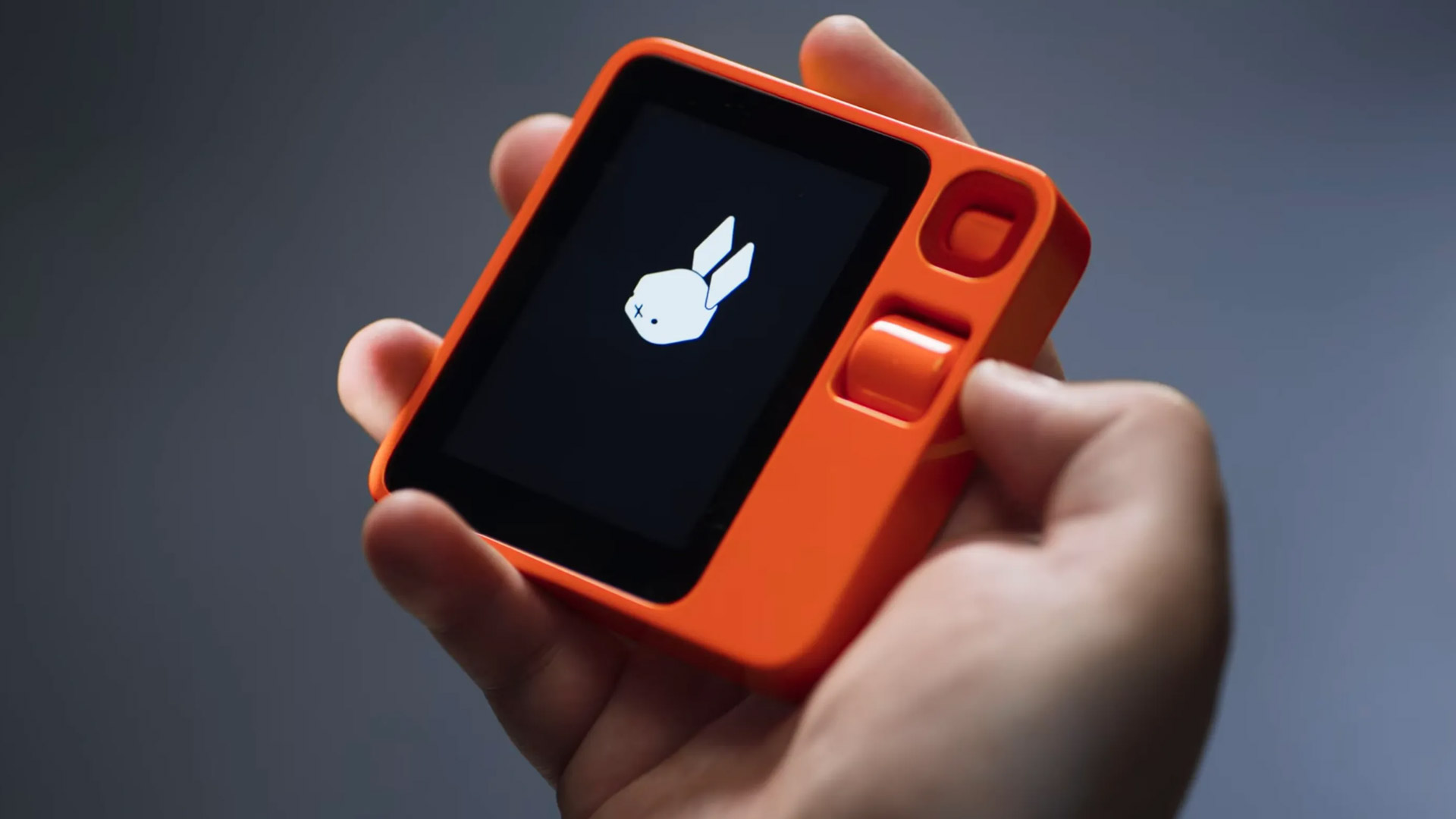
If the previous year marked significant advances in AI software, the following year has eagerly been anticipated as the gateway to a new dawn of AI hardware. Tech giants such as Google, Samsung, Meta, and Microsoft are leading the charge, showcasing their latest inventions—from smartphones to laptops, even venturing into the world of smart eyewear—all boasting deep integration with generative artificial intelligence. This surge in AI-centric products heralds a shift in focus towards devices designed to foster seamless interaction with AI, promising to revolutionize the way we engage with our digital experiences.
Beneath the historic aura of the TWA Hotel in New York City, a select group of technology enthusiasts gathered last month to witness a significant milestone: the unveiling of the Rabbit R1. Clad in vibrant orange and sporting a petite 2.88-inch display, the R1's form resembles a pack of sticky notes. It features a discrete camera positioned in the top right corner, a scroll wheel, and a dedicated button that beckons the implementation of voice controls.
Jesse Lyu, CEO of Rabbit, articulated a bold vision during their Consumer Electronics Show keynote earlier in the year. "Our mission is to create the simplest computer – something so intuitive that you don’t need to learn how to use it," Lyu proclaimed. In a world cluttered with app icons and notifications, and where attention is constantly hijacked by social networks like Instagram, Rabbit proposes a streamlined interaction model. With a simple voice command, the R1 promises to spring into action, employing what Rabbit dubs a 'Large Action Model' to fulfill user requests with AI's help.
Among the early enthusiasts is Daniel Ko, a fractional CFO specializing in AI startups—a realm apart from his current consumer relationship with the Rabbit R1. Yet, he sees significant potential in the gadget. "Personally, for me, I bought it because it looked super cool and, in a way, it's the first generation product of something that could be, you know, like the next iPhone maybe," Ko expressed to ABC Audio.
For Danny Cole, an artist residing in New York City, the R1 offers an intriguing alternative to the smartphone hegemony. Conversely, Jonah Cohn, a devoted early adopter and a college student from Chicago, ventured to New York expressly to claim his Rabbit R1. Having previously indulged in Apple's Vision Pro mixed reality headset, he is no stranger to the allure of pioneering gadgets. However, Cohn acknowledges the inherent risks of early adoption, especially with AI's current track record of unreliability.
The AI Pin, developed by Humane—a venture initiated by ex-Apple talents—enters the fray as another unique offering. At a premium price point of $699, this diminutive, wearable device latches on to clothing much like a lapel pin, aiming to redefine personal computing. According to Bethany Bongiorno, CEO of Humane, the AI Pin isn't designed to overthrow the smartphone but rather to facilitate a more focused digital interaction.
Highlighting the obsessive nature of our smartphone usage, the AI Pin aspires to handle routine tasks like sending texts or setting reminders without leading users down the rabbit hole of their hand-held devices. Despite these grand intentions, critical reception has been less than favorable. From tech YouTubers to industry publications, the consensus points to a product that struggles to justify its existence and its price tag, hampered by performance issues and the limitations of its AI.
Despite the underwhelming reviews, users like Jonah Cohn have discovered nuggets of utility in these AI-powered devices. His experiences with the AI Pin range from conveniently obtaining information about nearby events to social awkwardness attributed to the novel nature of the device.
Danny Cole's experiences with the Rabbit R1 have been mixed; while it has moments of successful operation, he was disappointed by unmet expectations and reliability issues. His frustration is echoed by other users and critics who find the current state of AI hardware underwhelming compared to the comprehensive functionality of modern smartphones.
The journey of AI gadgets from dazzling presentations to daily reliability continues to be a bumpy road. While the vision of simpler and more intuitive devices is compelling, consumer feedback points towards a nascent technology that still requires refinement. Rabbit and Humane are committed to enhancing their products through continuous software updates, but for the time being, devices like the Rabbit R1 and the Humane AI Pin serve as tantalizing, yet imperfect, glimpses into a future where AI integration might redefine our interactions with technology.
Share your moments and explore the perfect mix of modern luxury business and lifestyle stories.
Every alternate week get a packaged update from the world of Artificial Intelligence. A newsletter tastefully curated by deepreason.ai.
Every alternate week get a packaged update from the world of Artificial Intelligence. A newsletter tastefully curated by deepreason.ai.